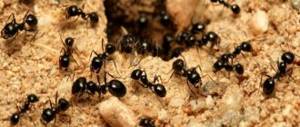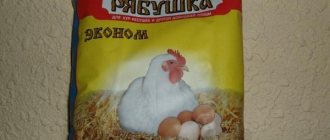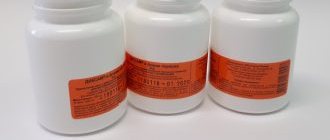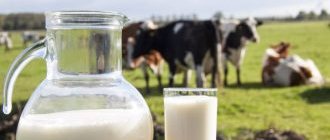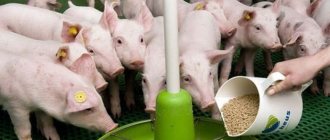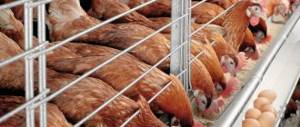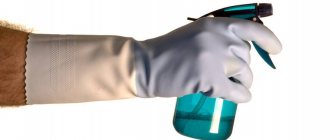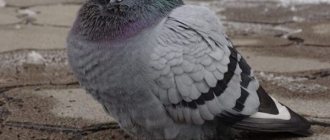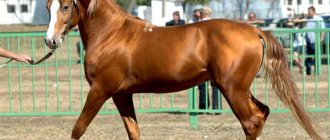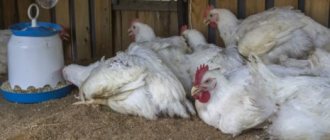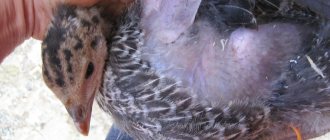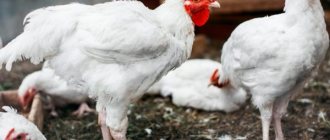For what diseases is Biomycin used?
The medicine is prescribed for pathologies caused by gram-positive or gram-negative microorganisms.
Biomycin has a strong and rapid effect, effective against infectious lesions
The powder form is used for intravenous solution, and the ointment is used for external application.
The medicine is effective for:
- staphylococcus;
- carbuncles;
- paratyphoid;
- coloparatyphoid pathologies;
- Balkan flu;
- infectious damage to the digestive organs;
- avian pullorosis;
- dermatitis;
- pasteurellosis;
- dysentery;
- lung damage;
- eczema;
- inflammatory processes;
- streptococcal infection.
The drug must be mixed with the feed for active growth of young animals.
How to use, dosage
The difference from other antibiotics is that Biomycin does not have side effects on animals.
The medicine is used as prescribed by a veterinarian. The duration and effectiveness of therapy directly depends on the type of pet, its age and the form of the disease.
Since the antibiotic has a wide spectrum of action, it is prescribed for the treatment of domestic and farm animals, as well as various types of poultry.
When using it, it is important to adhere to the recommendations set out in the annotation to avoid the development of side effects.
The ointment is used externally at intervals of 6-8 hours. The duration of therapeutic procedures is prescribed by a veterinarian depending on the established diagnosis.
For chickens
To improve the growth and development of young animals, veterinarians recommend using Biomycin in powder form. It should be mixed as a feed additive at the rate of 2 mg per 1 kg of food mixture.
For the treatment of pullorosis in chickens, it is recommended to adhere to a dosage of 1 mg per head until ten days of age, and from the 11th to the 20th day - 1.2 mg.
For therapy, the required amount should be dissolved in water, and then based on it, prepare a flour feed mixture intended for one time.
Frequency: 2 times a day. Duration of treatment: 1 week.
Be sure to read:
Treatment of coccidiosis in chickens and rabbits, drug Amprolium: instructions and price
For goslings, turkey poults and other birds
For infections, the drug is used at a rate of 5-10 mg per head. It can be dissolved in water for drinking or used as part of a flour mixture. Should be used 3 times a day for 5 days.
As a prophylaxis, the drug is used at a rate of 2-5 mg per head along with food or drink.
For adult birds
In this case, the daily dosage is 2-5 mg per head. The duration of treatment is 5-7 days. The powder should be mixed into food or drink.
In severe cases of infection, it is prescribed for intramuscular administration. Biomycin must be dissolved in a proportion of 2 mg per 2 ml of water. Reception should be carried out 3 times a day for 5 days.
For rabbits, cats and dogs
Intramuscular injections of Biomycin
Prescribed for the treatment of infections of the gastrointestinal tract, less often - colds. The powder is used in the form of intramuscular injections at the rate of 0.1-0.2 mg per head. Frequency: 2 times a day for 3-5 days.
If the main goal is prevention, then veterinarians recommend using 0.01 mg per head per day. Duration - 5 days.
Important! Throughout antibiotic therapy, it is necessary to exclude silage from the rabbits' food, since in combination with it it can cause diarrhea.
For cattle
Most often, Biomycin is used in the form of injections for toxic dyspepsia.
Veterinarians often prescribe Biomycin for both preventive and therapeutic purposes.
The first time it is administered at the rate of 15 mg per 1 kg of calf weight, subsequently the dosage should be reduced to 10 mg.
The frequency of administration is every 6 hours. A single dose is pre-dissolved in 30-50 mg of water. The dose should be taken half an hour before meals.
To prevent the spread of infection, it is necessary to carry out prophylaxis for the rest of the population. In this case, the drug is administered according to the same scheme as during treatment.
Can Biomycin be given to other animals?
This antibiotic has a broad spectrum of action, so it can also be used to treat other animals.
For diplostreptococcal infection in lambs, the drug is used in a dosage of 10 mg per 1 kg of weight. Administration is carried out orally. The interval between procedures should be 6-8 hours.
Be sure to read:
Bipin-T for bees in autumn: dosage, method of application, how to dilute and process
The duration of therapy is 3 days, then a break of 2 days is necessary, after which the medicine is administered again within 2-3 days.
For the treatment of toxic dyspepsia in piglets, the drug is used at the rate of 20 mg per 1 kg of weight for the first dose. Subsequently, the dosage should be halved.
The norm is administered orally every 7-8 hours. The duration of treatment is 1-3 days depending on the severity of the infection.
As a preventive measure, piglets are administered the drug immediately after birth for 3 days. Dosage - 20 mg per 1 kg of weight. The drug should be used once a day.
Side effects
Some farmers add Biomycin to chicken feed.
The antibiotic must be used strictly according to the instructions for use and based on the recommendation of a veterinarian. Any excess of the specified dosage may lead to poisoning.
The same result can be obtained if the duration of therapy is not observed.
Side effects:
- diarrhea;
- vomit;
- swelling;
- stomatitis;
- redness, peeling of the skin;
- rash.
If alarming signs of poisoning appear, stop taking the product and call a veterinarian. Sometimes it is enough to simply reduce the daily dosage.
But the decision to resume therapy should only be made by an experienced specialist. If it is impossible to continue treatment, this drug must be replaced with another.
Side effects and contraindications
When treating animals with Biomycin, it is very important to adhere to all recommendations of the instructions for use, as well as the advice of veterinarians. If you increase the dose above normal, poisoning may occur. This also applies to therapy longer than the specified period. In this case, the following symptoms may occur:
- the occurrence of stomatitis;
- vomit;
- diarrhea;
- swelling.
If your animal experiences any of the above symptoms, you should immediately stop taking Biomycin. In some cases, it is possible to simply reduce the single dose of the medicine. The veterinarian must make the decision. This specialist can assess the level of intolerance to the drug, as well as the possibility of replacing it with another drug.
Rabbit infected with stomatitis
If we talk about contraindications, they consist of sensitivity to any of the components of its composition. In this case, even the death of the animal is possible.
Composition and action of Biomycin
Biomycin
The drug belongs to the group of tetracyclines. Its active ingredient is produced by the microorganisms actinomyces aureofaciens. Its effectiveness has been proven even in severe forms of infections.
Symptoms decrease 2-3 hours after administration, and in especially severe cases - within 2-3 days.
Biomycin is recommended for use both as an independent medicine and as part of complex therapy. Its action is aimed at suppressing the activity of pathogens, as well as stimulating the growth and development of the animal itself.
Be sure to read:
How to remove worms from chickens and piglets with Tetramizole 10: instructions for use
This is achieved by strengthening the immune system and reducing the body's susceptibility to infection.
The use of the drug in stimulating doses allows you to change the intestinal microflora. As a result, microorganisms that absorb nutrients are replaced by those that improve the digestion process.
As a food additive to feed, the drug enhances the effect of vitamin B12 and eliminates the lack of riboflavin in the body. Its regular use improves calcium absorption.
This is interesting! Studies have shown that Biomycin helps reduce mortality by 2 times, and reduces the number of lagging young animals by 3 times.
Side effects of the drug and contraindications
When treating animals with Biomycin, it is very important to follow the instructions for use and recommendations of veterinarians . If you increase the dose more than normal, intoxication may occur. This also applies to performing therapy longer than the indicated time.
In this case, the following symptoms may appear:
- stomatitis;
- vomit;
- diarrhea;
- swelling.
If an animal experiences any of the signs listed above, you should immediately stop taking Biomycin. In some cases, it is possible to simply reduce the single dose of the drug. The veterinarian must make the right decision. This expert can assess the level of intolerance to the substance and the possibility of changing it to another medication.
If we talk about contraindications, they consist of sensitivity to any of the parts of its composition. In this case, even the death of the animal is likely.
Pharmacological properties
When ingested, the active component is quickly absorbed into the mucous membrane of the digestive system and has a suppressive effect on the reproduction of pathogens.
Reviews about Biomycin are mostly positive. Buyers recommend the use of this drug for both prevention and treatment and acceleration of growth rates
It is able to simultaneously cope with several diseases in the body. Moreover, the therapeutic effect lasts for a long time.
Decay products are excreted from the body through the kidneys and slightly through the liver.
The drug is recommended for severe forms of infectious diseases, which requires long-term use. This is due to the fact that the active component is unable to accumulate in the body, so the likelihood of side effects is minimized.
pharmachologic effect
The drug is quickly absorbed into the mucous membranes and has a therapeutic effect on pathogenic microflora. The active substance is able to cope with several diseases that develop in the body. The drug retains its activity for a long time.
Biomycin can be used to treat diseases that are severe over a long period of time. The drug does not have a negative effect on the mucous surfaces of the stomach and intestines, so it is often used to treat intestinal infections in young animals.
The active substance does not accumulate in the body and is excreted by the kidneys.
What other analogues exist?
You can replace the drug with drugs belonging to the tetracycline group.
Many veterinary pharmacies offer to purchase foreign analogues
Their spectrum of action is as close as possible to Biomycin.
Drug analogues:
- Terramycin;
- Oxytetracycline;
- Tetracycline.
